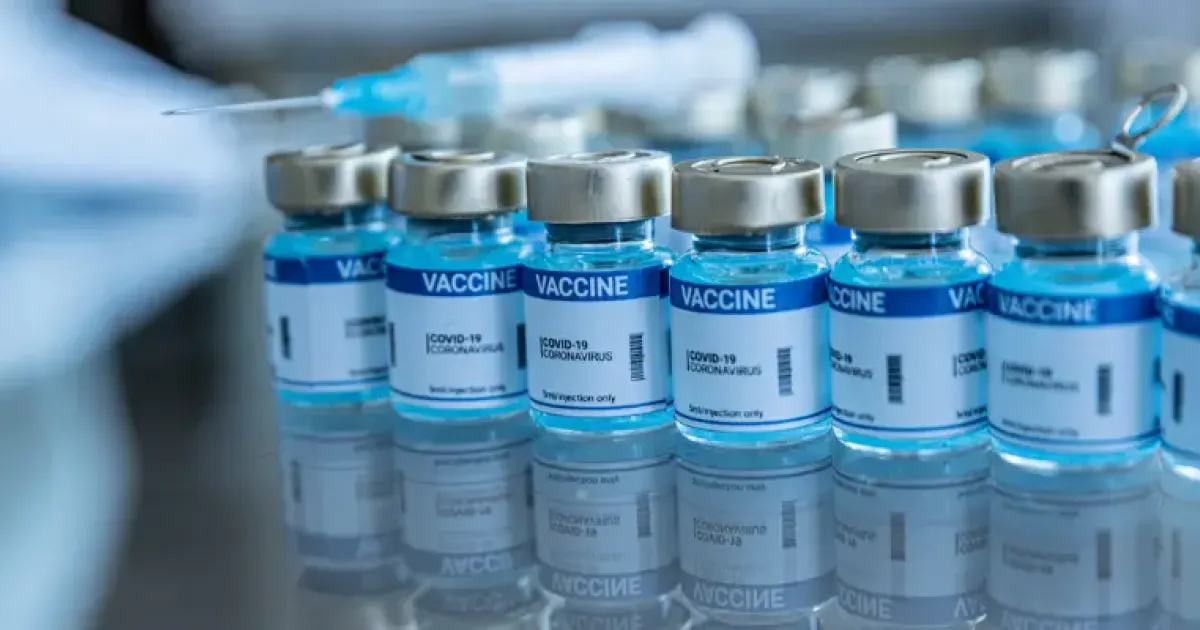COVID-19 Vaccine

As COVID-19 continues to be an issue, staying current with your COVID vaccinations remains one of the most effective and efficient ways to protect yourself and those around you. Our nursing team is committed to providing a simple, quick, and stress-free vaccination experience, with no appointment necessary.
What Is COVID-19 and How Does It Affect Your Body?
COVID-19 is caused by the distinctive coronavirus SARS-CoV-2, a supremely contagious pathogen that chiefly targets the respiratory system but can also affect multiple organ systems. The virus predominantly spreads through respiratory droplets discharged when an infected person talks, coughs, sneezes, or even breathes in the direction of people nearby. These droplets can infect others within a close radius, making airborne transmission possible, particularly in enclosed, poorly ventilated spaces.
Once inhaled or contacted, the virus attaches to cells lining the respiratory tract. This invasion triggers an immune response, leading to symptoms ranging from mild respiratory discomfort to severe illness. In the lungs, the infection can cause inflammation and damage the alveoli (the tiny air sacs responsible for gas exchange), which results in impaired oxygen absorption.
Severe cases may progress to complications such as pneumonia, acute respiratory distress syndrome (ARDS), and blood clots. Additionally, COVID-19 has been shown to cause systemic effects, affecting the cardiovascular, renal, neurological, and gastrointestinal systems, which can lead to an expansive spectrum of health issues, especially in vulnerable populations.
Initial Risk Factors for Severe Cases of COVID-19
Those with the following pre-existing conditions are considered to be at higher risk of developing severe cases of COVID:
- Asthma
- Blood cancers
- Blood disorders (including sickle cell disease)
- Cerebrovascular diseases
- Chronic kidney disease
- Some chronic lung diseases
- Some chronic liver diseases
- Cystic fibrosis
- Type 1 and 2 diabetes
- Gestational diabetes
- Disabilities, including ADHD, Down syndrome, cerebral palsy, and autism
- Heart conditions
- Tuberculosis infection or HIV
- Mood disorders, including schizophrenia and depression
- A neurologic condition or Dementia
- Parkinson’s disease
- Obesity
- Physical inactivity
- Chronic liver disease
- Kidney disease
- Recent or current pregnancy
- Primary immunodeficiencies
- Tuberculosis
- Former or current smoking
- Substance use disorder
- Blood stem cell transplant recipients or solid organ transplants
- Use of immunosuppressive drugs
Common Symptoms of COVID-19
COVID-19 symptoms can differ from mild to severe, and some individuals may even show few or no symptoms at all. Typically though, the common symptoms of COVID include:
- Sore throat
- Headache
- Runny nose or congestion
- Vomiting or nausea
- Diarrhea
- Chills or fever
- Cough
- Difficulty breathing or shortness of breath
- Fatigue
- Muscle or body aches
- Loss of smell or taste
Symptoms usually develop within 2 to 14 days after exposure. It is best to seek emergency help immediately if you experience severe symptoms such as chest pain, trouble breathing, confusion, or if you are more at-risk of developing a severe case of COVID-19 (see above list).
Why Getting Another COVID-19 Vaccination is Still Important
Although significant changes have occurred since COVID-19 emerged as a global health issue in early 2020, the virus still mutates. Variants like Omicron and its subvariants are still highly contagious. The COVID vaccine remains one of the most efficient methods for decreasing your risk of severe illness, hospitalization, and death caused by the virus. Keeping your COVID vaccinations current helps strengthen your immune system, enabling it to combat both new and past variants.
Who Should Get a Covid Vaccine?
If you received your primary COVID-19 vaccination series during 2020 or 2021, you are likely due, or even possibly overdue for a booster shot.Staying current also helps protect not only yourself but also those around you, especially vulnerable populations. Here are some general guidelines for when you should plan on getting an updated vaccine:
- If you are immunocompromised
- If you are age 65 or older
- If you have underlying health conditions such as asthma, diabetes, or heart disease
Even if you’ve previously had COVID-19, it’s still important to get the latest COVID booster. Natural immunity can decrease over time, and updated vaccines are designed to target the newer virus strains. If you need your next COVID-19 vaccine, call The Shot Nurse!
Out-Call Service
Yes, we can come to you to make staying healthy even easier. For groups of 10 or more, a nurse will come to your facility.
Walk-In Service
Walk-in service is available at any of our conveniently located Mid-South offices with front door parking and no waiting!
Car-Side Service
For persons with impaired mobility, we offer complimentary car-side service. Let The Shot Nurse serve you!